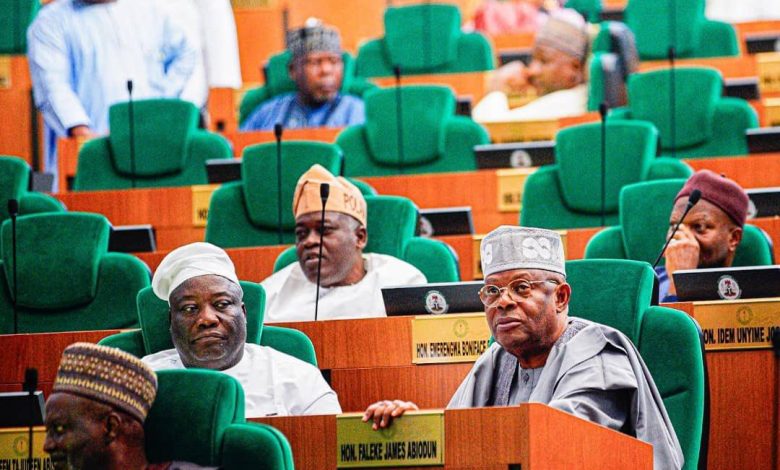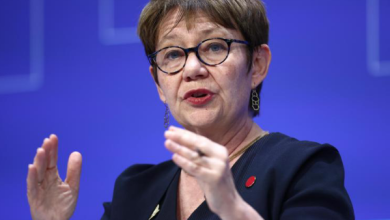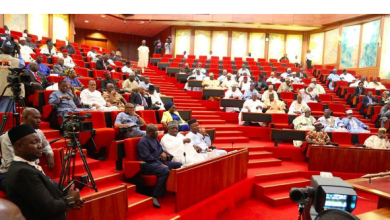Lead
Reps begin investigation into CNG policy implementation

The House of Representatives has commenced investigation into the implementation of the Compressed Natural Gas (CNG) policy of the Federal Government.
Speaking at the opening of an investigative hearing on Thursday in Abuja, Speaker of the House, Representatives Rt. Hon. Abbas Tajudeen, said that the policy was a key component to the country’s energy transition initiative.
According to Rt. Hon. Tajudeen, it represents a strategic shift toward cleaner, safer and more economically-viable alternatives to conventional fossil fuels, especially in the transportation sector.
Represented by Rep. Sada Soli (APC-Katsina), Tajudeen said that the policy was a response to the removal of fuel subsidies as a palliative and long-term solution to cushion the effects of high petrol prices.
He said the policy was expected to reduce transportation costs, improve air quality and stimulate industrial development across the gas value chain.
He, however, said that concerns had been raised on the pace of implementation, infrastructural readiness, safety standards and the sustainability framework for the initiative.
“Our concern is not just about the intentions of the policy, but the mechanisms of its execution. Are the funds appropriated being judiciously utilised? Are Nigerians feeling the impact?
“Are safety and environmental standards being upheld? Are stakeholders being adequately carried along? This hearing is, therefore, a platform to hear directly from the relevant agencies of government, operators, industry experts and the Nigerian people themselves.
“It is also an opportunity for accountability and constructive dialogue on how to ensure the successful rollout of the CNG policy in the interest of national development,” he added.
Earlier, Chairman of the House of Ad hoc Committee on the Implementation of CNG policy, Rep. Usman Jaha (APC-Borno) said that the policy risked failure without urgent transparency and stronger oversight.
Hon. Jaha raised questions on the accessibility, sustainability and equity of Nigeria’s CNG rollout.
Jaha described the policy as bold in ambition, but beset by troubling realities that must be confronted if it is to serve Nigerians effectively.
“While the policy was envisioned as transformative, especially for low-income earners and commercial drivers, its implementation has raised serious questions about safety, access, affordability and public awareness,” he said.
The chairman said that the hearing was aimed at scrutinising the management of public and private investments in the policy as well as the level of distribution and accessibility of CNG infrastructure across the country.
In his remarks, the Corps Marshal of Federal Road Safety Corps (FRSC), Mr. Shehu Mohammed, declared full support for the implementation of Nigeria’s CNG initiative,
Mohammed described the initiative said that as a safe, cost-effective and environmentally responsible alternative to traditional fuels.
He urged the National Assembly to provide the legislative and budgetary backing to strengthen regulatory enforcement and ensure the long-term success of the programme.
Represented by Deputy Corps Marshal, Mr Abiodun Akinlade, Mohammed said that the CNG initiative aligned with global best practices in sustainable transportation and clean energy.
According to him, with the right protocols, CNG adoption poses no significant safety risk to motorists or the public.
The corps marshall said that FRSC was ensuring mandatory registration of all CNG-converted vehicles for national database for traceability, enforcement of safety standards and certification of road worthiness.
He explained that contrary to widespread misconceptions, CNG was significantly less volatile than Premium Motor Spirit (PMS) and Automotive Gas Oil (AGO).
“With an ignition point of 540°C—much higher than PMS at 280°C—and a dispersion tendency when leaked due to its lighter-than-air properties, CNG is considered safer in event of an accident.
“CNG is not a threat; it is an opportunity; it is up to regulators, legislators and stakeholders to ensure its proper integration into the transport system without compromising safety,” he said.


